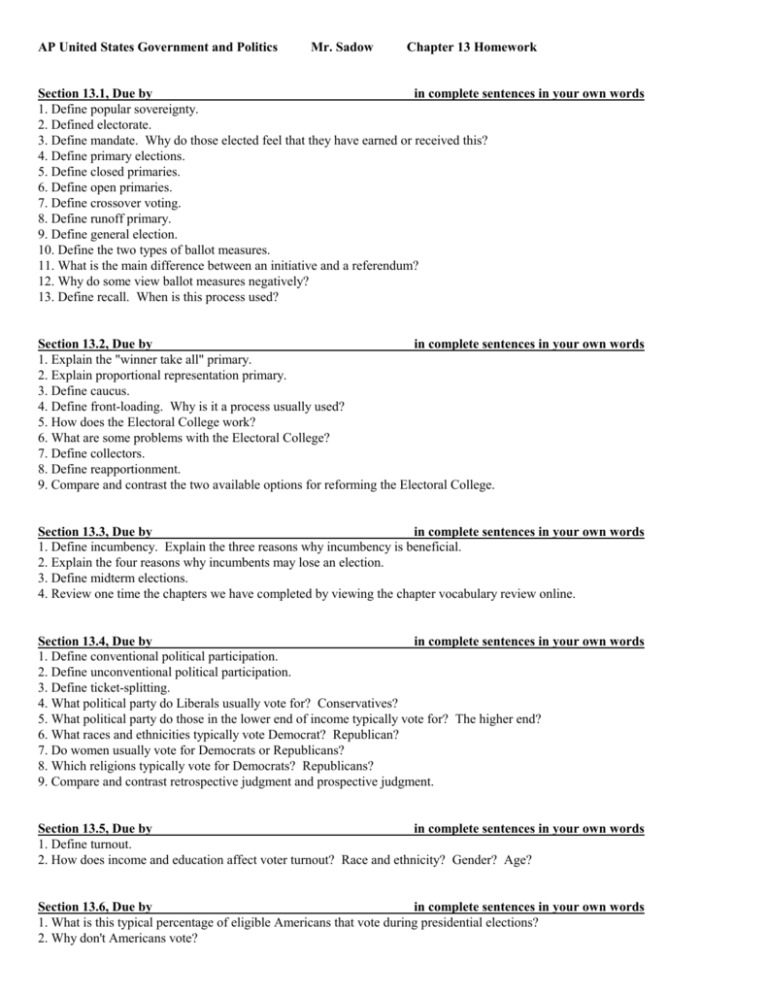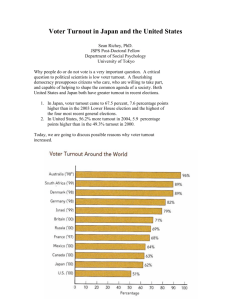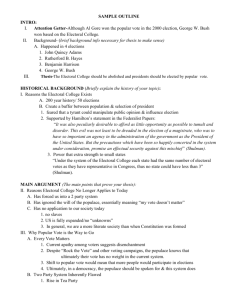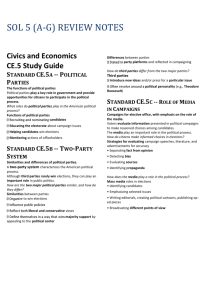Chapters 13 homework
advertisement

AP United States Government and Politics Mr. Sadow Chapter 13 Homework Section 13.1, Due by in complete sentences in your own words 1. Define popular sovereignty. 2. Defined electorate. 3. Define mandate. Why do those elected feel that they have earned or received this? 4. Define primary elections. 5. Define closed primaries. 6. Define open primaries. 7. Define crossover voting. 8. Define runoff primary. 9. Define general election. 10. Define the two types of ballot measures. 11. What is the main difference between an initiative and a referendum? 12. Why do some view ballot measures negatively? 13. Define recall. When is this process used? Section 13.2, Due by in complete sentences in your own words 1. Explain the "winner take all" primary. 2. Explain proportional representation primary. 3. Define caucus. 4. Define front-loading. Why is it a process usually used? 5. How does the Electoral College work? 6. What are some problems with the Electoral College? 7. Define collectors. 8. Define reapportionment. 9. Compare and contrast the two available options for reforming the Electoral College. Section 13.3, Due by in complete sentences in your own words 1. Define incumbency. Explain the three reasons why incumbency is beneficial. 2. Explain the four reasons why incumbents may lose an election. 3. Define midterm elections. 4. Review one time the chapters we have completed by viewing the chapter vocabulary review online. Section 13.4, Due by in complete sentences in your own words 1. Define conventional political participation. 2. Define unconventional political participation. 3. Define ticket-splitting. 4. What political party do Liberals usually vote for? Conservatives? 5. What political party do those in the lower end of income typically vote for? The higher end? 6. What races and ethnicities typically vote Democrat? Republican? 7. Do women usually vote for Democrats or Republicans? 8. Which religions typically vote for Democrats? Republicans? 9. Compare and contrast retrospective judgment and prospective judgment. Section 13.5, Due by in complete sentences in your own words 1. Define turnout. 2. How does income and education affect voter turnout? Race and ethnicity? Gender? Age? Section 13.6, Due by in complete sentences in your own words 1. What is this typical percentage of eligible Americans that vote during presidential elections? 2. Why don't Americans vote? 3. What are some ways that may improve voter turnout? 4. Review one time the chapters we have completed by viewing the chapter vocabulary review online.











